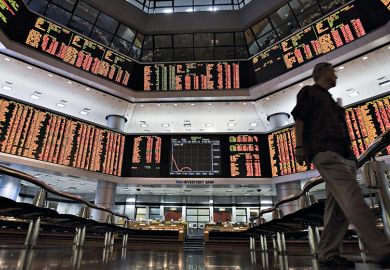This book presents a series of arguments for improving academic enquiry through the lens of “humanomics”. For economists, or other academics, who haven’t come across humanomics before, it is in essence a combination of the rigorous tools of economics with more human elements such as the critical perspectives that are often found in the humanities. Pioneers of this approach include “the father of economics”, Adam Smith, Nobel prizewinner Vernon Smith and experimental economist Bart Wilson.
It should be noted that Deirdre McCloskey is clear that the tools of economists are important. Our approach to economic enquiry should be rigorous, and the means to do that are through mathematical modelling. But the book also argues clearly for other tools and methods to be developed so as to fulfil the author’s vision of a better humanomics approach to economic questions.
McCloskey presents compelling arguments that economic agents are not merely attempting to maximise their utility, but are influenced by other factors such as the power of words. I particularly enjoyed the chapter that playfully looks at the approach economists take to research through considering the meanings of the word “science”. In the English language, we have become accustomed to this referring to the “hard” sciences of biology, chemistry and physics. However, other languages refer to science as “systematic enquiry”, which means that we can distinguish between different types.
Given the mathematical nature of the discipline, we economists often like to think of ourselves as the most “scientific” of the social sciences. Yet McCloskey challenges the idea that economics is similar to physics, arguing that the sciences have a much stronger sense of the history of their own disciplines. Perhaps, she suggests, economics shouldn’t be so wedded to the idea of being a science, and should instead embrace forms of critical analysis found in philosophy, history and similar disciplines.
This book builds on McCloskey’s previous trilogy about the Bourgeois Era – The Bourgeois Virtues (2006), Bourgeois Dignity (2010) and Bourgeois Equality (2016) – in which she presented the argument that improvements in standards of living and general human welfare were the result of innovation and not, as others have claimed, of capitalist accumulation. She returns to this argument throughout Bettering Humanomics with evidence demonstrating why applying numerous perspectives to historical events can enhance our understanding. The key is thinking of humans as humans, and not just utility-maximising agents. I am inclined to agree that good academic practice in economics should include respect for all disciplines, and a sense of where tools and assumptions other than ours might be more appropriate. Economics has sometimes failed to embrace such an approach.
Today, however, the discipline is in the midst of change. There seems to be a real sense that improvements need to be made in order to attract a wide range of bright, intuitive and young people into the profession. No longer are we happy to perpetuate the idea that economics is a dismal science. Instead, we find many layers and a depth that is bought to life through McCloskey’s book. It is this side of the discipline that I hope will appeal to the curious economists of the future.
Laura Harvey is lecturer in economics at the University of East Anglia.
Bettering Humanomics: A New, and Old, Approach to Economic Science
By Deirdre Nansen McCloskey
University of Chicago Press, 144pp, £21.12
ISBN 9780226771441
Published 6 May 2021
POSTSCRIPT:
Print headline: Mind people not just their money
Register to continue
Why register?
- Registration is free and only takes a moment
- Once registered, you can read 3 articles a month
- Sign up for our newsletter
Subscribe
Or subscribe for unlimited access to:
- Unlimited access to news, views, insights & reviews
- Digital editions
- Digital access to THE’s university and college rankings analysis
Already registered or a current subscriber?









